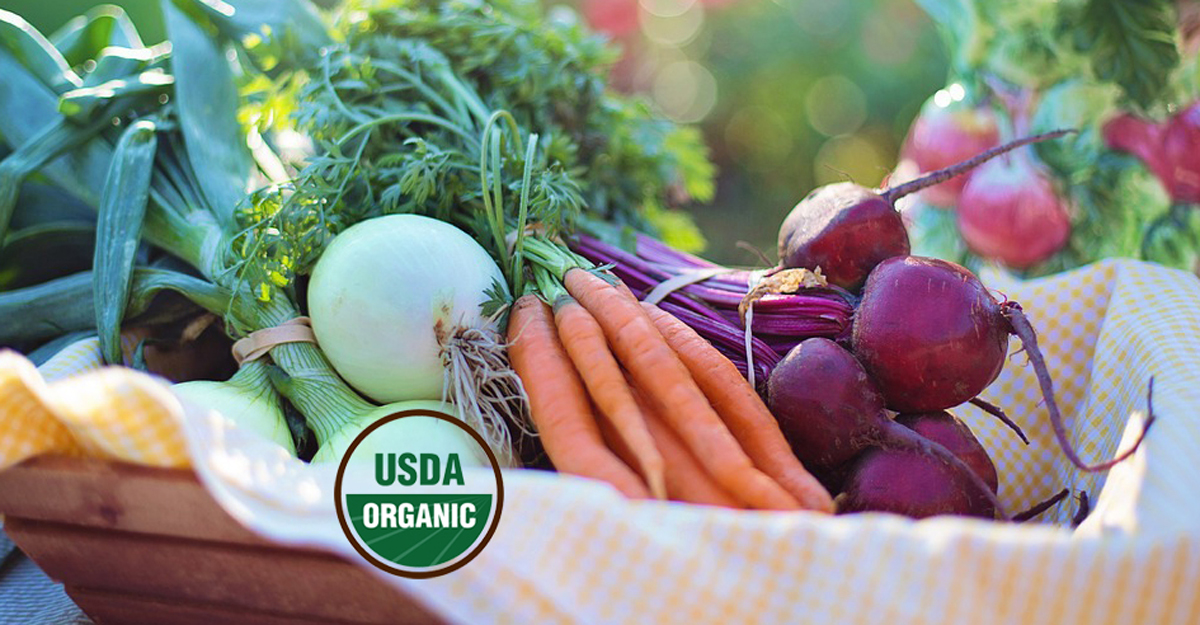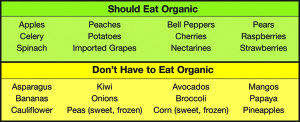
Organic, Does it Matter?
by Mark J Kaylor
Most of us probably think of “organics” as a recent, trendy happening. However, not too long ago, the typical farm in the United States was a family farm, which, for all practical purposes, grew its produce and raised its livestock organically, without all the petrochemicals, hormones and antibiotics that are employed today. Unfortunately this has come at quite a cost, not only to the rich history and traditions that helped make the U.S. the food basket to the world, but to our health and the health of the planet. Traditional sustainable farming is being replaced by agribusiness and chemical agriculture.
One of the arguments frequently used against organic farming is that we need these petrochemicals to protect our food. The reality is that the percentage of crops lost to insects in 1915 is actually less than what is lost today, at least according to the USDA.
So what are the main reasons for eating organic?
1) Nutrition – While this is an area of some debate there have been several studies that demonstrate higher nutrient density in organically grown foods. One recent study showed a 5% to 40% lower level of minerals in foods harvested today than 50 years ago when it was all pretty much organic. Other studies suggest organic foods may be higher in antioxidants, various vitamins and even be better cancer fighters.
2) Health & disease prevention – Even the EPA lists pesticide residue from our food as a leading risk factor for cancer as well as considering it a high risk factor for noncancer disorders and diseases. As many as 16 different chemicals can be applied to a single crop and we have little idea as to the long-term consequences of consuming them. And we definitely have no idea what eating them in combination is going to do to ourselves. Imagine, each of the foods we eat with multiple residues eaten over decades of life?
3) Soil health – Agrichemical farming leads to soil depletion which in turn leads to less nutritious and unhealthy plants while also requiring greater and greater amounts of synthetics to be added to the soil.
4) Petroleum independence – We live in a time when great efforts are being made to make us less dependent upon an oil-based economy. These synthetics that we cover our food in are all derived from petroleum. Would you want to drink or eat petrol? And yet that is what we are doing, we eat on average 2 pounds of these chemicals a year.
Must Buys

There are two food groups that are the most important to buy only organic if you can. The first is baby food and the other is meat. The very young are more vulnerable to toxins of any sort, including pesticides, fertilizers, hormones and antibiotics. Their immune systems have not yet fully developed and they have higher rates of metabolism all put together in a much smaller body. Sadly, babies are now born with pesticide residue already in their bodies and then fed on pesticide containing breast milk. So you might want to consider baby food as anything the mother eats during pregnancy and nursing. (Enlarge Image)
Non-organic meat contains much higher levels of pesticide residue, at levels almost 100 times higher than produce. Remember that as we move up the food chain, toxins such as this will concentrate. Meat is also a source for unwanted hormones and antibiotics. Did you know that the majority of antibiotics used today are fed to livestock? So if you eat meat, choose organically raised.
Your Health and The Future
More and more connections are being made between our overuse and misuse of chemicals as we see increases in diseases that were once fairly rare. Has it all made us healthier? Are we more rigorous than our parents and grandparents? If we are what we eat, is petrochemical who we want to be? The average American contains over 500 synthetic chemicals in their blood. And what of the health of the planet that we are leaving for future generations?
Our health, vitality and future as well as that of our children and grandchildren may lie within the answers to these questions. So, go organic.
Know Your Terms
The USDA National Program Organic Program now defines the use of organic related terms:
“100% Organic” – must contain only certified organic ingredients
“Organic” – must contain at least 85% certified organic ingredients
“Made with Organic Ingredients” – must have at least 70% of the ingredients certified organic and cannot use the USDA organic seal

